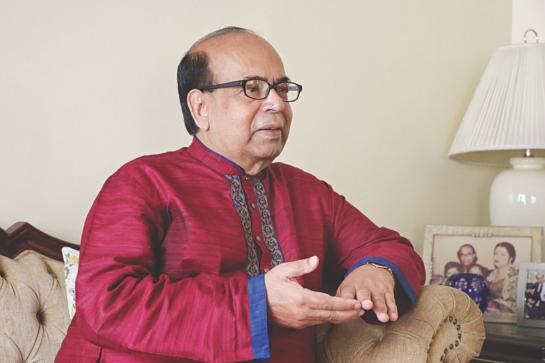Safe food still a far cry

Food safety remains a big concern for Bangladesh's 160 million-strong population. Many foodstuffs, be they manufactured or processed, are adulterated to varying degrees. This problem persists at every level of the food chain, starting from preparation through to consumption. The Daily Star has taken an initiative to inform its readers about this serious public health concern. The newspaper is running a series of interviews on the issue. Here is the first of the three interviews.
Progress in ensuring food safety in Bangladesh has remained slow despite huge public outcry and efforts by various agencies, thanks to businesses' profiteering tendency, a lack of enforcement of laws, coordination among government bodies and awareness among consumers.
“Bangladesh has a long way to go to ensuring safe food and fight adulteration,” Ghulam Rahman, president of the Consumers Association of Bangladesh (CAB), told The Daily Star earlier this month on the occasion of the National Safe Food Day, which was observed on February 2.
Dishonest businesses continue to adulterate foods to make money. Besides, there is not enough resistance from consumers.In the past there was a lack in commitment on the part of the government. “Laws were there but largely in scattered forms.”
But in 2009 the first comprehensive law was framed to protect the rights of consumers. Under the law, the Directorate of National Consumers Rights Protection (DNCRP) was set up.
Then in 2013 the Safe Food Law was framed, under which the Bangladesh Food Safety Authority (BFSA) was formed to coordinate amongst the 18 ministries and 486 agencies involved in ensuring food safety.
“The legal structure has been put in place and steps have been taken to build the institutional structure. But, the institutions have not been made capable yet,” said Rahman, also a former chairman of the Anti-Corruption Commission.
The framing of law and establishment of organisations reflects the intent of the government.
“But these cannot perform their task effectively because of a lack of seriousness of the government or bureaucratic complexity.”
He said some initiatives have been taken but they are not being supported with adequate workforce and resources.
For instance, the DNCRP has set up offices throughout the country and formed consumer rights protection committees up to union level.
“But setting up of committees is not enough and they have to act to protect our rights,” said Rahman, while calling for its strengthening.
The BFSA has got approval to put in place a 365-strong workforce and the hiring of 123 is at the final stage.
“The situation of the BFSA is direr. It has an inadequate number of workforce to ensure food safety for 16 crore population.”
Rahman went on to acknowledge the role of businesses in the country's economic growth. “But there are numerous associations and sometimes I feel that these associations have become an instrument in forming syndicate, violating the rights of consumers.”
One reason could be the large-scale intrusion of businessmen into politics.
The development is not in the best interests of consumers as the businesses' mindset is profit-making, with public interest and other issues taking the second spot. “This creates the scope for consumer interest getting compromised.”
The CAB chief lauded the BFSA's initiative of grading restaurants and called for continuous monitoring as there is scope for misuse.
Food can become unsafe for various factors, including the use of chemicals and antibiotic in production, transportation and sales. Adulteration and contamination can take place in all of these stages and even at home, he said.
The profiteering tendency and a lack of awareness are the two major factors behind adulteration. For instance, there is a lack of knowledge among farmers on the use of pesticide.
“Farmers apply pesticide to vegetables on the day of harvesting. This is a wasteful expenditure and is done because of a lack of awareness. It is essential to encourage farmers to follow good agricultural practice.”
The lack of coordination among the ministries and agencies involved in ensuring safety is also causing adulteration. Rahman called for strengthening of the agencies so that they can implement the laws properly.
